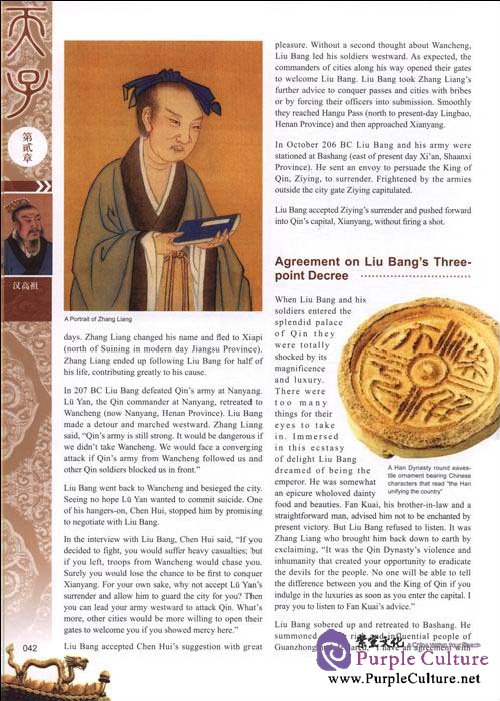Sample Pages Preview

 Preface
PrefaceThroughout
China's long history the life of emperors living in the imperial palace
has remained a mystery. How were they able to ascend the throne? What
did they do all day, everyday? How were their emotional experiences
different from others'? What were their values and how did they behave?
There were many concubines - rumored to be more than 3,000 for one
emperor alone - what was their life like? These questions have aroused a
lot of curiosity among the people of more modem eras. This book intends
to help shine a little light on this history by examining several of
the most representative figures among these monarchs. This book
describes 12 of the most famous emperors in Chinese history. From the
perspective of how they ruled, readers can see that, in a great and
unified patriarchal society, the feudal monarchs operated in a way
approximating a family type political system: the throne was inherited
according to the priority of family members; and an emperor and his
courtiers jointly formed a governmental system to control the country.
In this system, the imperial power was sovereign, and it was regarded as
an ideal condition when an august emperor and his sagacious ministers
cooperated harmoniously. However. the emperors had continuously
arrogated all powers to themselves until they turned into their
opposites: this over centralized power resulted in corruption and
degeneration within the government at the highest level. leading to
collapse of the dynasty eventually. Before a new social structure came
into being, in other words, fatalistic emperors seemed to continuously
play this scenario out dynasty after dynasty.Each of the 12 emperors
described in this book, most of them established a dynasty, had made
great contributions. They were all-powerful, wielding their power, each
in turn, and leaving an indelible impression on Chinese history. Through
their experiences, readers will see the earth-shaking dynastic changes
and how common people, even a Buddhist monk who were begging, became an
emperor. In China, there is a saying, "The times produce their heroes."
It was history that brought them their golden opportunities. They were
good enough to be regarded as the most outstanding talents and the
greatest heroic figures because they had crushed their enemies by
winning decisive victories. Among the emperors discussed in this book
some simply built on the achievements of their predecessors while others
revived a nation. These emperors were well educated, versatile and
outstanding. The full development of economy and culture provided
necessary objective bases for them and they were required to play
important roles in their time and make glorious achievements.

